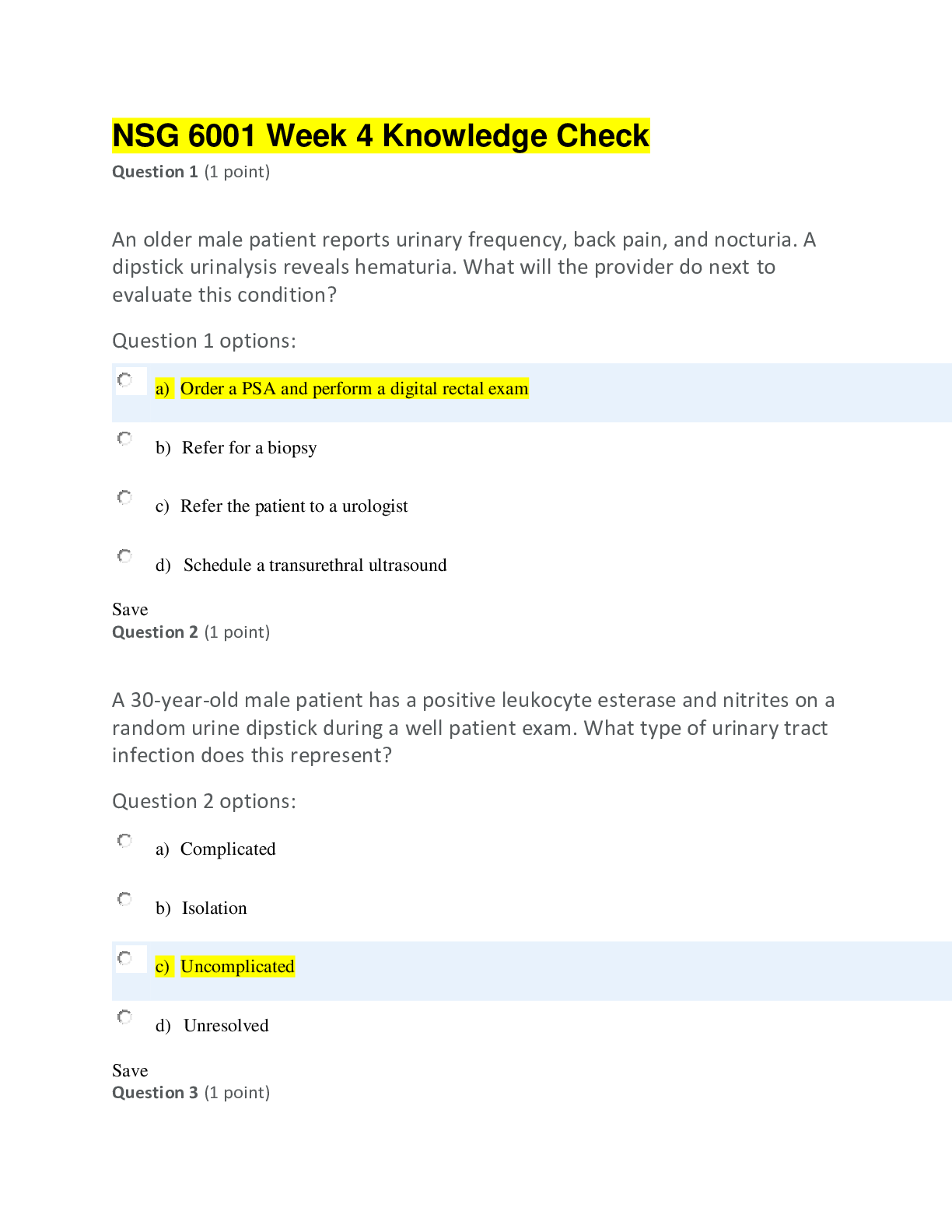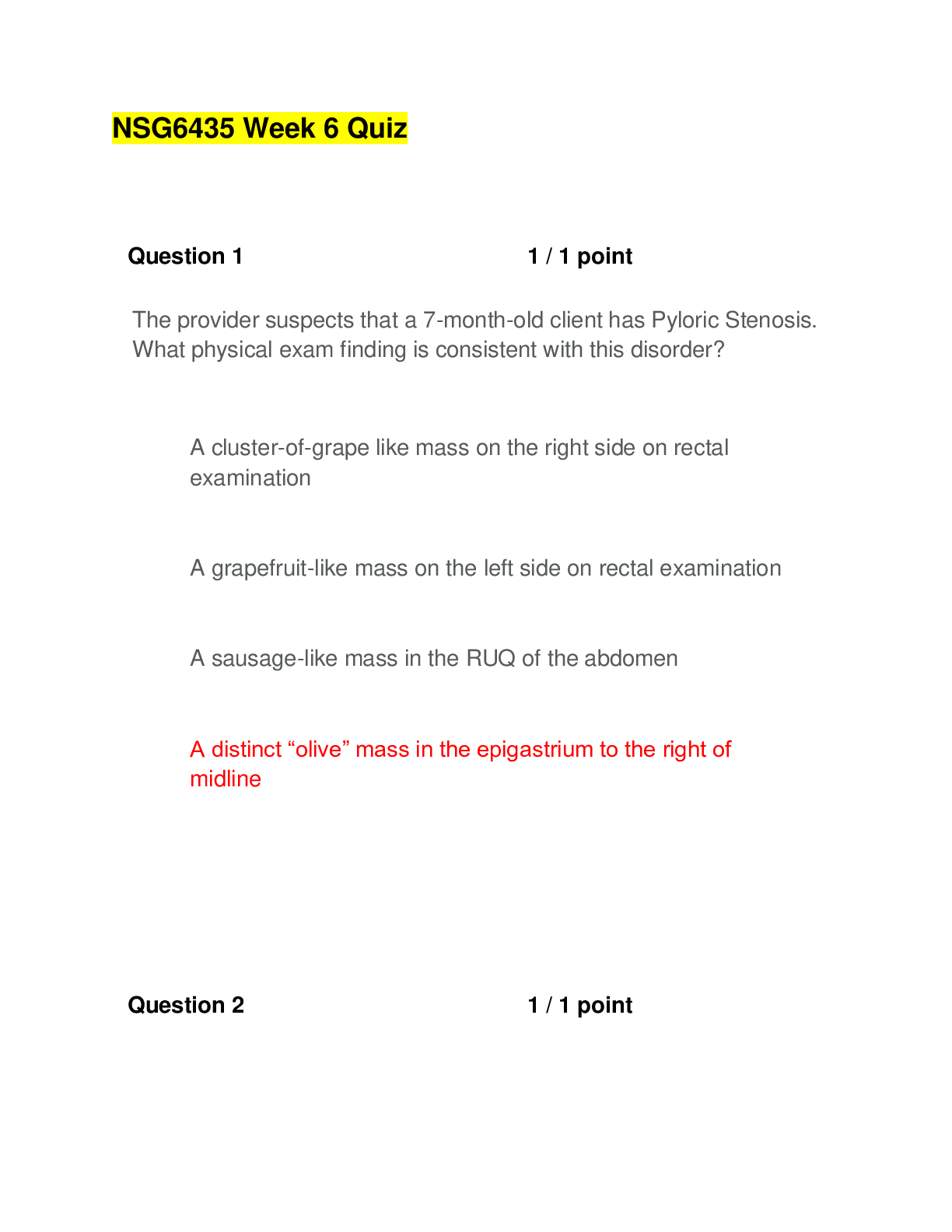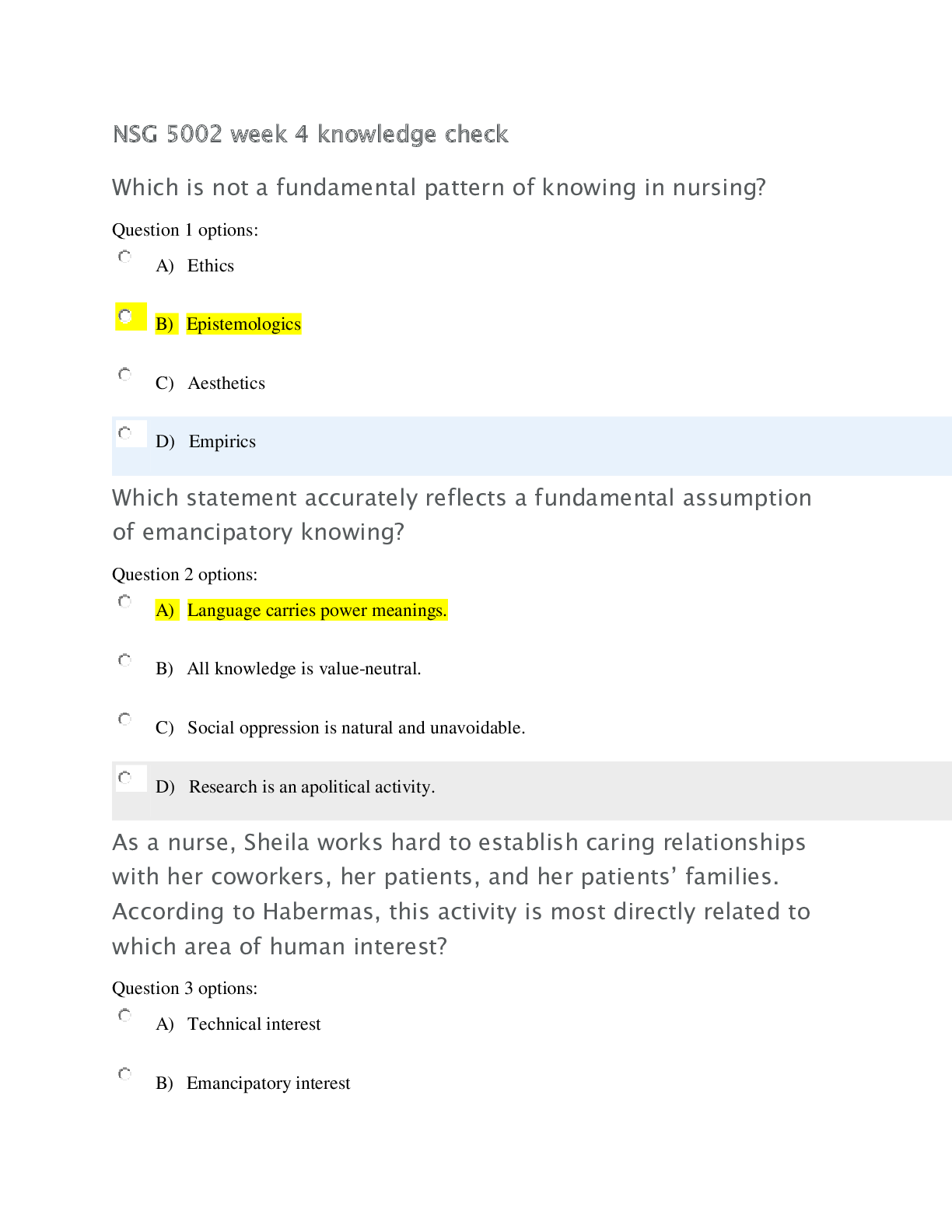*NURSING > EXAM > Walden University NURS 6501N 6501 Knowledge Check Module 3- Gastrointestinal and Hepatobiliary Diso (All)
Walden University NURS 6501N 6501 Knowledge Check Module 3- Gastrointestinal and Hepatobiliary Disorders. Contains all the 18 Scenarios with fully answered Questions.
Document Content and Description Below
Knowledge Check Module 3- Gastrointestinal and Hepatobiliary Disorders Scenario 1- Peptic Ulcer A 45-year old male comes to the clinic with a chief complaint of epigastric abdominal pain that has pe... rsisted for 2 weeks. He described that pain as burning, non-radiating and is worse after meals. He denies nausea, vomiting, weight loss or obvious bleeding. He admits to bloating and frequent belching. PMH- + for osteoarthritis, seasonal allergies with frequent sinusitis infections. Meds- Zyrtec 10mg PO daily and takes it year around, ibuprofen 400-600mg PO PRN pain. Family Hx- non-contributory Social Hx- recently divorced and expressed concern at how expensive it is to support 2 homes. Works as a manager at a local tire and auto company. He has 25 pack/year history of smoking, drinks 2-3 beers/day, and drinks 5-6 cups of coffee/day. He denies illicit drug use, vaping or unprotected sexual encounters. Breath test in the office revealed + unease. The healthcare provider suspects the client has peptic ulcer disease Question 1- What factors may have contributed to the development of PUD? Question 2- How do these factors contribute to the formation of peptic ulcers? Scenario 2- Gastroesophageal Reflux Disease (GERD) Question 1- The client asks the APRN what causes GERD. What is the APRN’s best response? Scenario 3- Upper GI Bleed A 34-year old construction worker presents to his PCP with a chief complaint of passing foul smelling dark, tarry stools. He stated the first episode occurred last week, but it was only a small amount after he had eaten a dinner of beets and beef. The episode today was accompanied by nausea, sweating, and weakness. He states he has had some mid epigastric pain for several weeks and has been taking OTC antacids. The most likely diagnosis is upper GI bleed which won’t be confirmed until further endoscopic procedures are performed. Question 1- What factors can contribute to an upper GI bleed? Scenario 4- Diverticulitis A 64-year old steel worker presents to his PCP with a chief complaint of passing bright red blood when he had a bowel movement that morning. He states the first episode occurred last week, but it was only a small amount after he had eaten a dinner of beets and beef. The episode today was accompanied by nausea, sweating, and weakness. He states he has had some left quadrant pain for several weeks but describes it as “coming and going.” He says he has had a fever and abdominal cramps that have worsened this morning. The likely diagnosis is lower GI bleed secondary to diverticulitis. Question 1- What can cause diverticulitis in the lower GI track? Scenario 5- Portal Hypertension A 48-year old man presents to his gastroenterologist for increasing abdominal girth and increasing jaundice. He has a long history of alcoholic cirrhosis and has multiple admissions for encephalopathy and GI bleeding from esophageal varices. He has been diagnosed with portal hypertension and tells the APRN that he was told he had chronic, non-curable cirrhosis. [Show More]
Last updated: 1 year ago
Preview 1 out of 13 pages

Buy this document to get the full access instantly
Instant Download Access after purchase
Buy NowInstant download
We Accept:

Reviews( 0 )
$11.00
Can't find what you want? Try our AI powered Search
Document information
Connected school, study & course
About the document
Uploaded On
Nov 12, 2020
Number of pages
13
Written in
Additional information
This document has been written for:
Uploaded
Nov 12, 2020
Downloads
0
Views
261


























